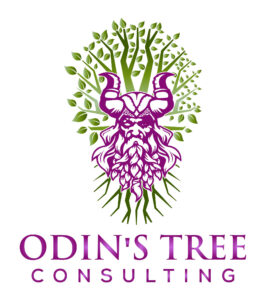In the rapidly evolving business landscape, staying abreast of the latest human resources (HR) trends is crucial for startups and small businesses aiming to attract and retain top talent. As these businesses often operate with leaner resources compared to larger corporations, they must be particularly strategic in their HR practices. Here are several current HR trends that are significantly affecting startups and small businesses.
Remote Work and Flexible Schedules
The shift towards remote work has become one of the most significant trends in recent years, accelerated by the COVID-19 pandemic. Startups and small businesses are now more open to hiring remote employees, which expands their talent pool beyond geographical limitations. Additionally, offering flexible schedules can improve employee satisfaction and work-life balance, which is particularly appealing to the millennial and Gen Z workforce.
Emphasis on Company Culture and Employer Branding
Startups and small businesses are increasingly recognizing the importance of a strong company culture and employer brand. A positive work environment that aligns with employees’ values can drive engagement and loyalty. Transparent communication, a sense of purpose, and a commitment to employee well-being are key components of a culture that attracts top talent. Strong employer branding helps differentiate a startup or small business in a competitive job market.
Use of HR Technology
HR technology tools are becoming more accessible and affordable for smaller enterprises. Automating administrative tasks such as payroll processing, benefits administration, and applicant tracking can save time and reduce errors. These tools also provide valuable data analytics that can inform strategic HR decisions, such as identifying turnover trends and understanding employee engagement levels.
Waning Focus on Diversity, Equity, and Inclusion (DEI), and the movement towards meritocracy
There is a growing trend to prioritize meritocracy over Diversity, Equity, and Inclusion (DEI) initiatives to ensure that employees are recognized and rewarded based on their individual skills and contributions. Meritocracy fosters a culture of fairness and encourages employees to strive for excellence, ultimately leading to increased productivity and performance. By focusing on meritocracy, small businesses can create a more competitive and results-driven environment where employees are motivated to excel based on their own merit rather than external factors. This approach can help small businesses attract and retain top talent while maintaining a strong and cohesive organizational culture centered around performance and achievement.
Employee Wellness and Mental Health Support
Employee wellness, including mental health, is becoming a priority for businesses of all sizes. Startups and small businesses are implementing wellness programs that may include mental health days, access to counseling services, and initiatives that promote physical health, such as fitness challenges or subsidized gym memberships. Supporting employee wellness can lead to improved productivity and reduced absenteeism.
Upskilling and Professional Development
In a rapidly changing business environment, continuous learning and development are essential. Startups and small businesses are investing in upskilling their workforce to keep pace with technological advancements and industry changes. Offering professional development opportunities can also be a key differentiator in attracting employees who are eager to advance their careers.
Gig Economy and Contract Work
The gig economy continues to influence the way startups and small businesses approach their workforce. Many are leveraging freelancers and contract workers for project-based work or to fill skills gaps. This can provide flexibility and cost savings, though it’s important for businesses to navigate the legal distinctions between contractors and employees properly.
Enhanced Employee Engagement and Feedback Mechanisms
Startups and small businesses are placing greater emphasis on employee engagement, recognizing its impact on retention and performance. Regular feedback mechanisms, such as employee surveys and one-on-one check-ins, help HR to gauge employee sentiment and address concerns promptly. This trend towards open dialogue and continuous feedback fosters a culture of trust and collaboration.
HR Compliance and Regulatory Awareness
As employment laws and regulations continue to evolve, maintaining compliance is a critical concern for startups and small businesses. It’s essential for HR to stay informed about changes in labor laws, tax regulations, and industry-specific compliance requirements to avoid costly legal issues.
Conclusion
For startups and small businesses, adapting to these current HR trends is not just about staying competitive; it’s about creating a workplace that is attractive to current and future employees. By embracing flexible work arrangements, leveraging HR technology, prioritizing DEI, supporting employee wellness, and ensuring professional growth opportunities, these businesses can build a resilient and dynamic workforce poised for success in the modern economy.




